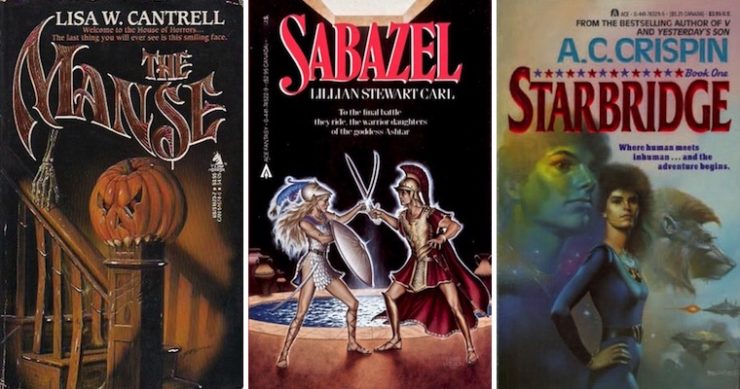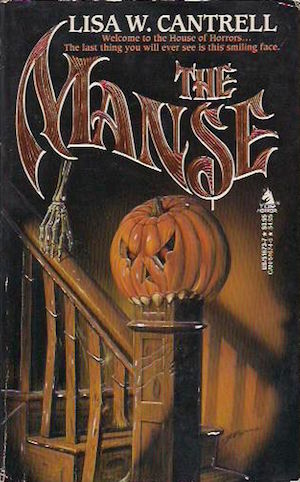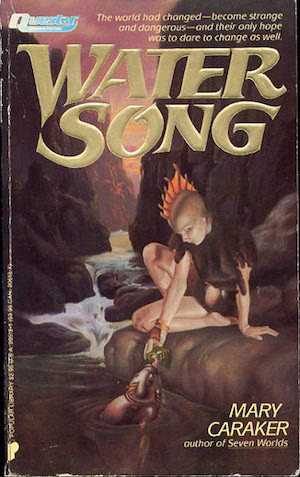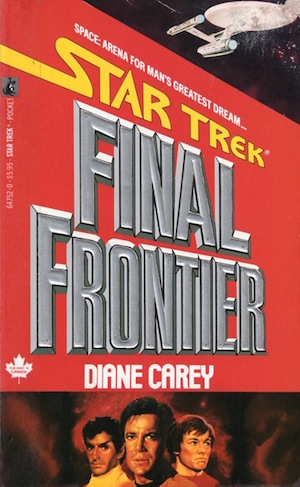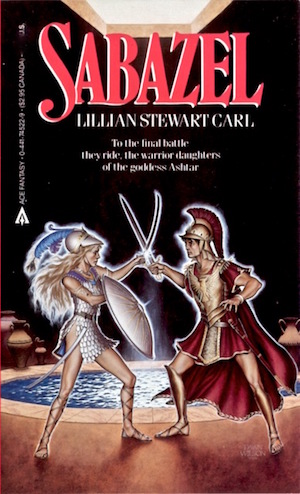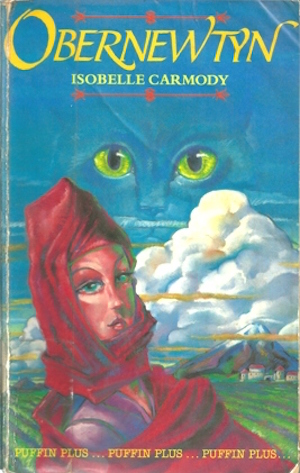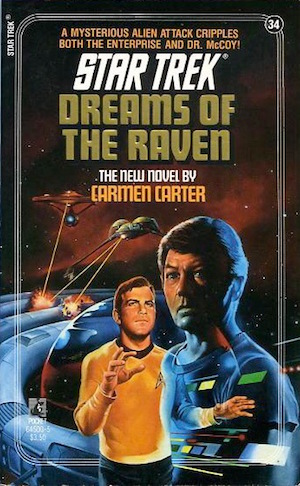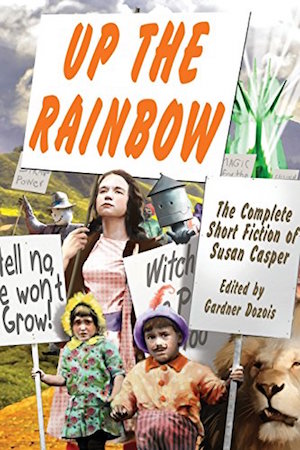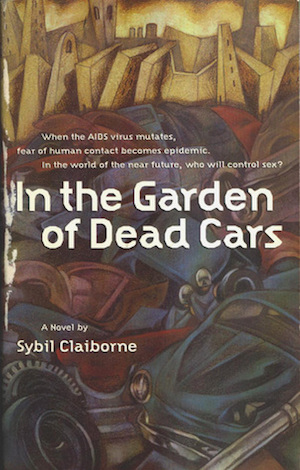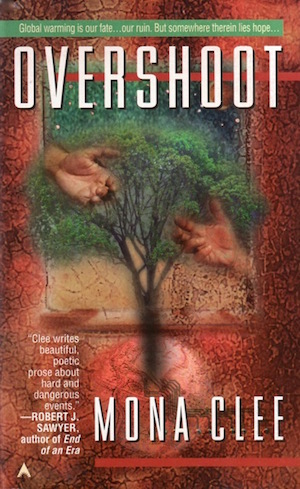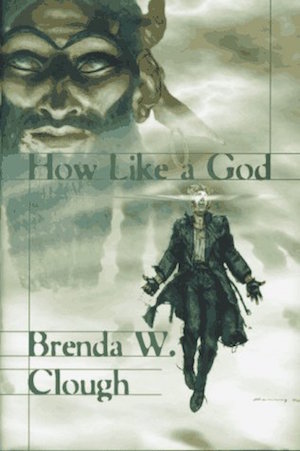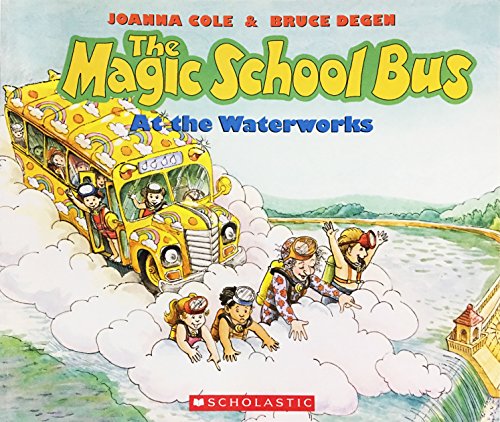The next stop in our tour through the science fiction and fantasy of the 1980s is “women whose surnames begin with C.” The usual disclaimers apply, foremost among them being that, as I am monolingual, I am only covering authors who were published in English at some point.
Lisa W. Cantrell was active in the horror field in the 1980s and 1990s. Her novel The Manse, a tale of a haunted house attraction that proves all too realistic, was well received at the time, but if Cantrell has had a novel published since 1992’s Boneman I am unaware of it. This may reflect the hazards of being active in horror, a genre subject to dramatic booms and busts.
Mary Caraker debuted in Analog in an era when Analog wasn’t much interested in publishing any women at all. Although she has since moved onto other fields, over the course of her fifteen years in SF she published five novels and over a dozen short stories, often touching (as do Water Song and The Faces of Ceti) on ecological themes. The fix-up Seven Worlds draws on the author’s experience as a teacher, although presumably Caraker’s career involved less high-level diplomacy.
Diane Carey is a prolific author, most often of tie-in novels (particularly Star Trek). She is also active in romance and historical fiction.
Lillian Stewart Carl is, I believe, currently most active in mystery and romance (genres whose audiences are large enough that SF&F’s audience could be squeezed into their error bars). Her works often feature the paranormal; her publishers may label the books as one genre or another, but most of that is merely marketing. Bujold fans may find her Vorkosigan Companion of interest; otherwise, consider her historically-inspired fantasy Sabazel.
Australian-born Isobelle Carmody is active in the overlapping sets of fantasy, science fiction, and young adult and children’s fiction. One might choose to begin reading Carmody with her 1987 debut novel, Obernewtyn. This book has some superficial similarities to John Wyndham’s The Chrysalids. Both take place in a world scarred by nuclear holocaust and feature a conformist, backward, brutal society, one that punishes those born with mutant gifts. However, Carmody explores themes well beyond the simple solutions offered by Wyndham. There are to date seven books in that series. Readers who finish the Obernewtyn series may find her other series of interest.
Carmen Carter is an active author of Star Trek novels. Tie-ins are not my forte, so I am unsure where to start with her work.
Susan Casper wrote mostly at short lengths, often in collaboration with husband Gardner Dozois. She had a single novel of which I am aware, the posthumously-published The Red Carnival, but readers might want to begin with 2017’s Up the Rainbow: The Complete Short Fiction of Susan Casper.
To be honest, I don’t know if Sybil Claiborne belongs in this project or the 1990s sequel (not yet written but gestating). She was definitely writing short fiction in the 1980s, but I could not say if it was spec-fic. Her 1993 dystopia, In the Garden of Dead Cars, is most definitely spec-fic: it was listed on the 1993 James Tiptree, Jr. Award Honor List .
Mona A. Clee began publishing short SF works in the 1980s but I know her from her two novels: pessimistic ecological thriller Overshoot, and the somewhat more optimistic Branch Point, in which time travelers try desperately to prevent a 1963 Soviet-American nuclear exchange, only to discover they’ve replaced a horrific atomic war with even more horrific variations. “Oh, dear, we seem to have made a bad situation much worse,” may not sound like it could be more upbeat than any other book, but A) there is a solution, and B: Overshoot is pretty glum.
Carolyn Clink is primarily a poet, with at least two collections: Much Slower Than Light and Changing Planes.
Brenda W. Clough was first published as B. W. Clough . Readers new to Clough should be able to find her 1997 How Like a God, whose protagonist finds himself in possession of godlike powers far more disruptive to a happy life than he may have expected.
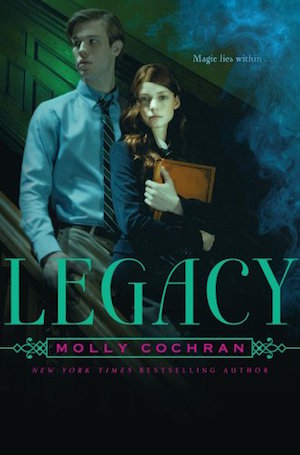
Molly Cochran is a prolific fantasy and thriller author, who often collaborates with her husband, Warren Murphy. Solo works include Legacy, featuring a young witch coming of age in a community of witches.
Joanna Cole is the incredibly prolific author of the highly successful Magic School Bus series of fantasy educational novels aimed at younger readers. The series was the inspiration for the highly successful TV series of the same name, as well as a sequel series. I believe the first novel is At the Waterworks. If Ms. Frizzle isn’t actually a Time Lord, she could certainly pass for one.
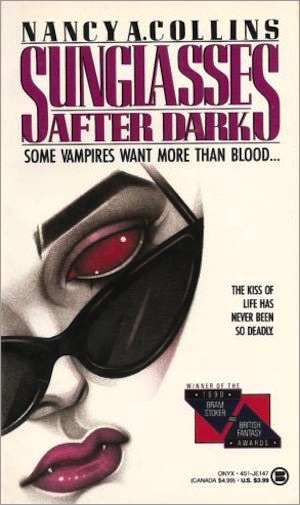
Nancy A. Collins is a fairly prolific horror writer who is active in a variety of media. Her Stoker-winner Sunglasses After Dark kicked off her long-running Sonja Blue series. Medical technology allowed its eponymous lead to survive conversion to vampirism without the usual temporary death; Blue has used the ability conferred by her unique status to deliver necessary rebukes to the vampire community.
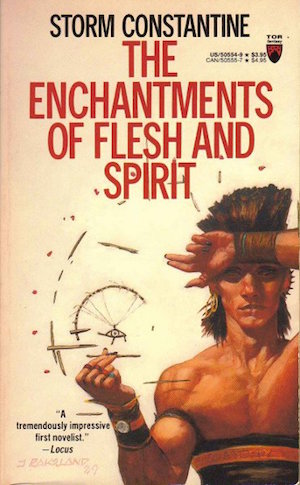
Storm Constantine first came to reader’s attention with her Wraeththu Chronicles (The Enchantments of Flesh and Spirit (1987), The Bewitchments of Love and Hate (1988), and The Fulfillments of Fate and Desire (1989)). She has since written at least 20 more novels. Her work straddles fantasy and science fiction, often examining issues of sex and gender. Constantine is also a publisher; her Immanion Press originally focused on Constantine’s own back list but has expanded to include authors from Tanith Lee to Freda Warrington.
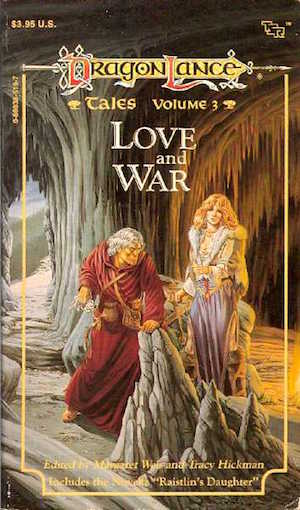
Tonya C. Cook is primarily a Dragonlance author.
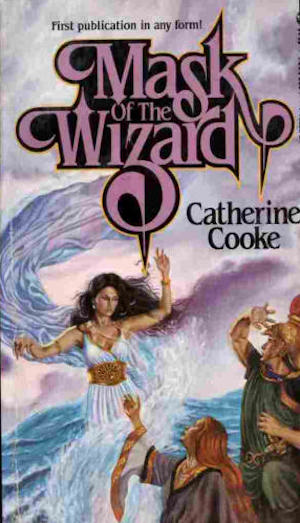
Catherine Cooke penned two fantasy trilogies (Mask, comprised of Mask of the Wizard (1985), Veil of Shadow (1987), and The Hidden Temple (1988), and Winged Assassin, comprised of The Winged Assassin (1987), Realm of the Gods (1988), and The Crimson Goddess (1989)), as well as dark fantasy The Wendigo Border (1995). Most of her backlist seems to be out of print, but readers curious about Cooke’s work can buy the ebook edition of The Wendigo Border.
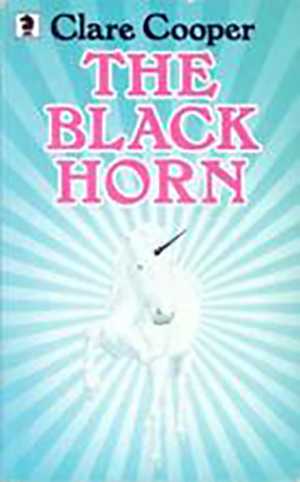
Clare Cooper writes young adult novels, ranging from fantasy like 1981’s The Black Horn to after-the-end SF like 1985’s Earthchange.
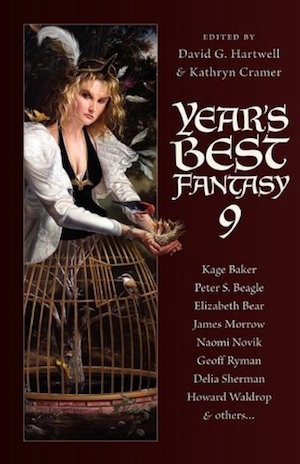
Kathryn Cramer has written short fiction but she may be best known for co-helming The Year’s Best Fantasy from 2001 to 2009 and The Year’s Best SF from 2002 to 2012.
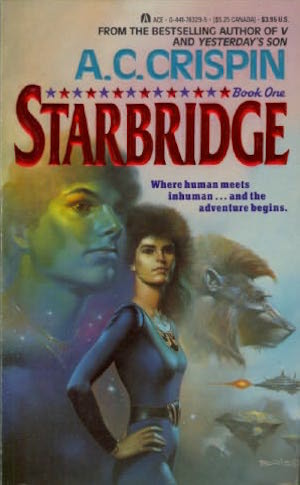
A. C. Crispin authored the collaborative Starbridge series, as well as a fair number of well-liked tie-in novels. Her greatest contribution to spec fic may well be an ancillary activity; with Victoria Strauss she created Writer Beware, a watchdog organization that protects writers from the legions of scam artists who would otherwise strip the naive down to their fillings and bones. One can judge someone by the enemies they make in life. Crispin’s enemies marked her as an exemplary person.
Far more women debuted in the 1980s than in the 1970s. The corollary is that I managed to overlook far more women in the 1980s than I did in the 1970s, which means my lists of shame are embarrassingly large. If you can offer pointers on where to begin with the following authors, please share your knowledge.
Buy the Book
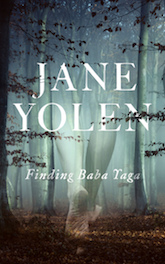

Finding Baba Yaga: A Short Novel in Verse
List of shame:
- Susan Carroll
- Ellin Carter
- Ann Cathey
- Deborah Chester
- Pam Chillemi-Yeager
- Mary E. Choo
- Patricia B. Cirone
- G. O. Clark
- Marcia Cohee
- Marion Cohen
- Valerie Nieman Colander
- Sherry Coldsmith
- Isabel Cole
- J. L. Comeau
- Judith R. Conly
- P. E. Cook
- Susan Coon
- H. J. Cording
- Vonnie Winslow Crist
- Annette S. Crouch
- P. E. Cunningham
- Chris Curry
1: The Tiptree has a structure that seems to confound ISFDB and Wikipedia. There are several different accolades the jury can confer (which ones are, I believe, given at the discretion of each jury). A novel might win the Tiptree. It might make the Honor List. It could make the Long List of noteworthy books. A novel that gets the Award very definitely can be said to be the winner. That does not make the Honor List or Long List “nominees”, or at least it’s misleading to call such books nominees. Other books are also put forward for consideration that don’t make either list. Books that make the Long List should be called books that made the Long List, while a strong argument could be made that books on the Honor List are books that are on the Honor List. It’s not rocket surgery!
2: DAW Books editor Donald Wollheim was the sort of publisher willing to publish women. He was also worried that his readers might not be able to handle the very notion of scribbling women. Hence he sometimes concealed feminine-sounding first names behind initials. (Notably Carolyn Janice Cherry, who disappeared behind C. J. and also had an H appended to her surname. Just to be sure.) DAW eventually dropped this custom. No doubt this increased the number of men forced to retreat to their fainting couches by flagrant displays of femininity. Further research is needed to measure the impact of this development on the fainting couch market.
In the words of Wikipedia editor TexasAndroid, prolific book reviewer and perennial Darwin Award nominee James Davis Nicoll is of “questionable notability.” His work has appeared in Publishers Weekly and Romantic Times as well as on his own websites, James Nicoll Reviews and Young People Read Old SFF (where he is assisted by editor Karen Lofstrom and web person Adrienne L. Travis). He is surprisingly flammable.










